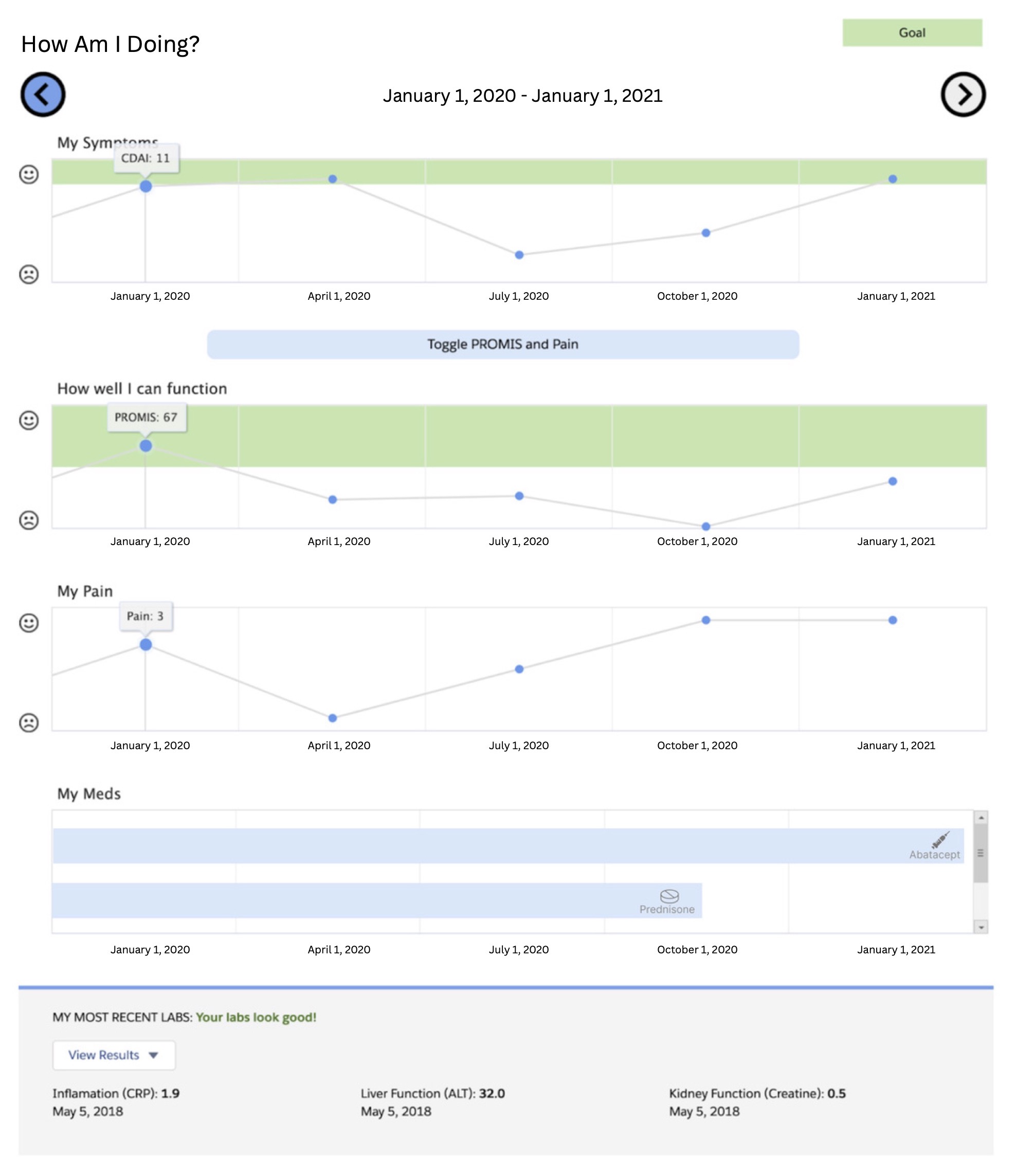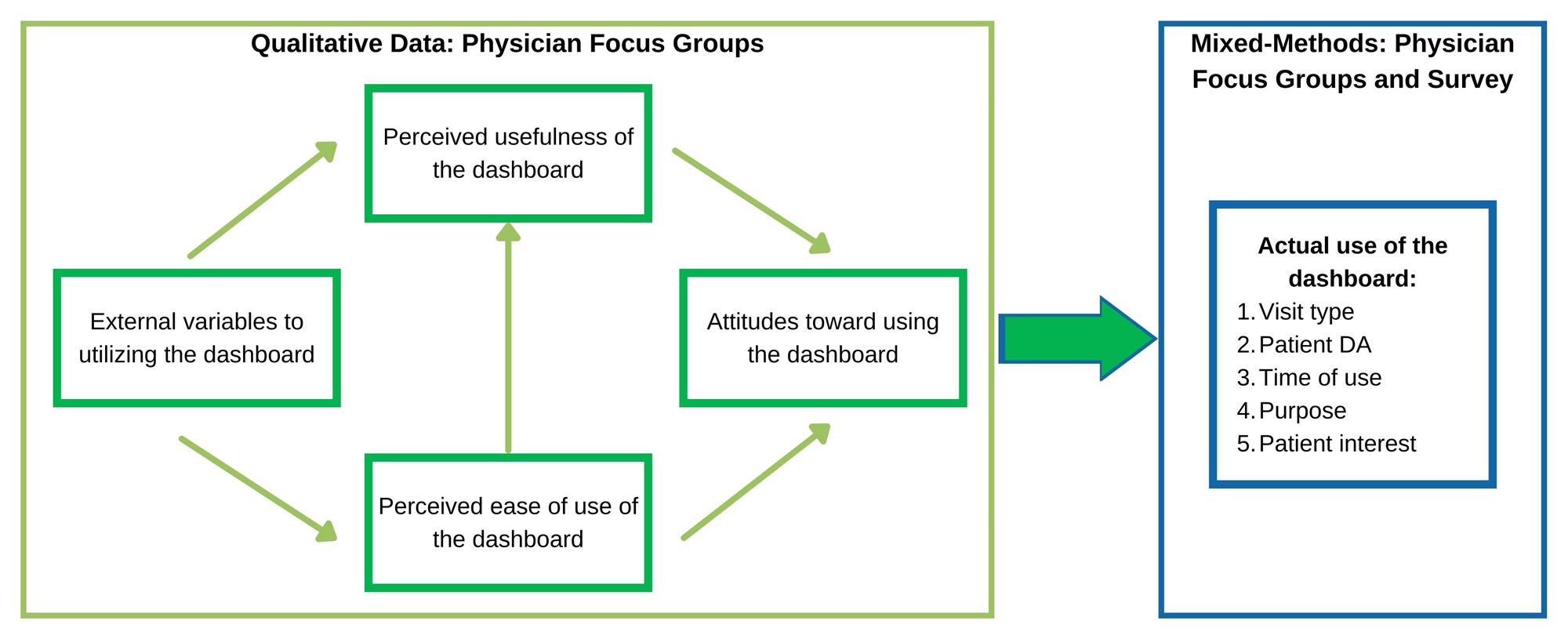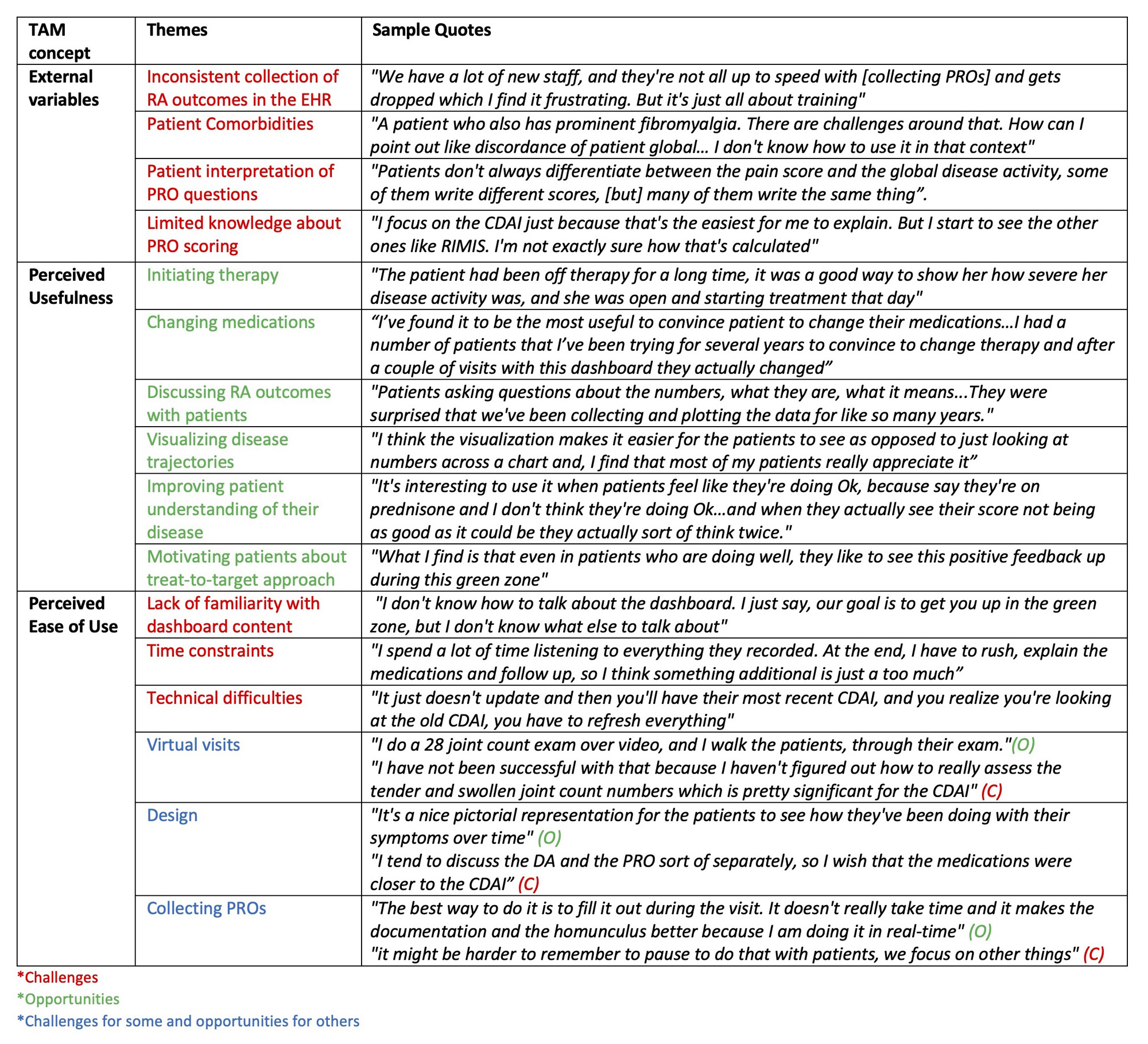Session Information
Date: Tuesday, November 14, 2023
Title: (1895–1912) Measures & Measurement of Healthcare Quality Poster II
Session Type: Poster Session C
Session Time: 9:00AM-11:00AM
Background/Purpose: Improving shared decision-making using a treat-to-target approach, including the use of patient reported outcomes (PROs), is important to providing high quality care for rheumatoid arthritis (RA). We developed an EHR-integrated, patient-facing sidecar dashboard application that displays RA outcomes (disease activity (DA), functional status, pain scores), medications, and lab results for use during clinical visits (Figure 1). The purpose of this study was to assess physician perceptions and experiences using the dashboard in a university rheumatology clinic.
Methods: Data derived from focus group (FG) discussions and surveys with physicians who had access to the dashboard as part of a randomized, stepped-wedge pragmatic trial. FGs explored physician perceptions towards the usability, acceptability, and usefulness of the dashboard. FG data were analyzed thematically using deductive and inductive techniques; emerging themes were categorized according to the Technology Acceptance Model (TAM; Figure 2). Surveys, which were collected during consecutive visits in which the dashboard was not discussed with the patient, queried physicians’ reasons for non-use. Survey data were summarized as proportions.
Results: 3 FGs included 12 rheumatologists and 102 surveys were collected from 14 physicians. Major themes that emerged from the FG analysis as barriers to using the dashboard included inconsistent collection of RA outcomes leading to sparse data in the dashboard and concerns about explaining RA outcomes, especially to patients with fibromyalgia (Table). Other challenges included time constraints and technical difficulties refreshing the dashboard to display real-time data. Nevertheless, physicians were enthusiastic about the dashboard and expressed the usefulness of visualizing RA outcome trajectories in a graphical format for motivating patients, enhancing patient understanding of their RA outcomes, and improving communication about medications. Methods for integrating the dashboard into the visit varied: some physicians used the dashboard at the beginning of the visit as they documented RA outcomes; others used it at the end to justify changes to therapy; and a few shared it only with stable patients. Survey results aligned with the themes identified in the FGs: the most reported reason for not using the dashboard was an assumption that the dashboard would not be useful for the patient (32%) (often because of low DA or comorbid conditions). Other reasons included forgetting to use the dashboard (19%), lack of patient data in the dashboard (12%), and time constraints (12%). Technical difficulties accounted for a small amount of non-use (6%).
Conclusion: We used a mixed-methods approach to assess physician perceptions of a novel EHR sidecar dashboard application that aims to improve the quality of care for RA patients. Despite enthusiasm for the value of this new technology, discomfort with discussing RA outcomes, inconsistent workflows for incorporating the dashboard into the visit, and incomplete EHR data were major reasons for not using the dashboard. Future work should address these barriers to improve uptake of the dashboard.
To cite this abstract in AMA style:
Nasrallah C, Wilson C, Hamblin A, Jacobsohn L, Young C, Young C, Nakamura M, Gross A, Ashouri J, Matloubian M, Yazdany J, Schmajuk G. Using the Technology Acceptance Model to Assess Physician Perceptions and Experiences Using the Rheumatoid Arthritis-Patient-Reported Outcomes Dashboard: Mixed-Methods Study [abstract]. Arthritis Rheumatol. 2023; 75 (suppl 9). https://acrabstracts.org/abstract/using-the-technology-acceptance-model-to-assess-physician-perceptions-and-experiences-using-the-rheumatoid-arthritis-patient-reported-outcomes-dashboard-mixed-methods-study/. Accessed .« Back to ACR Convergence 2023
ACR Meeting Abstracts - https://acrabstracts.org/abstract/using-the-technology-acceptance-model-to-assess-physician-perceptions-and-experiences-using-the-rheumatoid-arthritis-patient-reported-outcomes-dashboard-mixed-methods-study/



